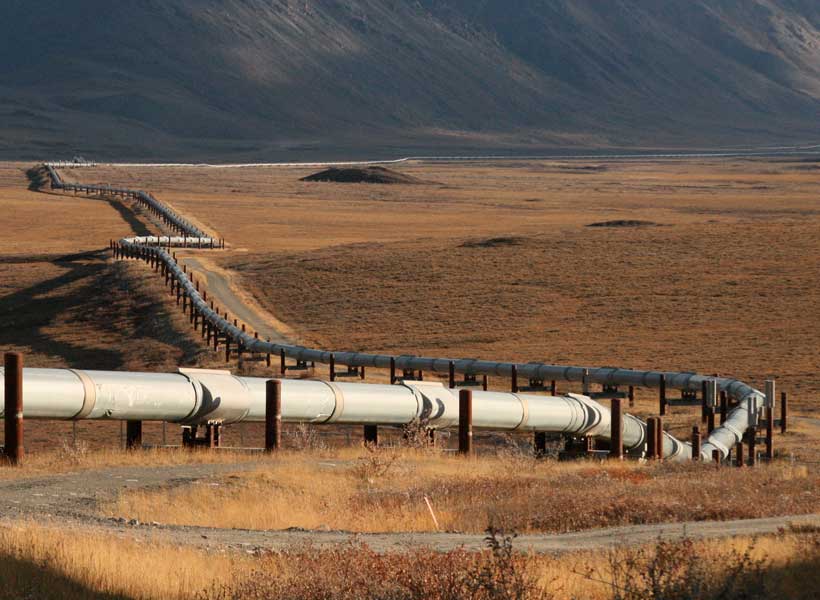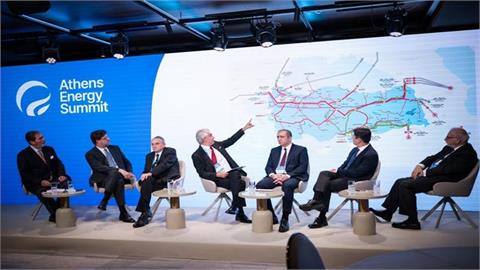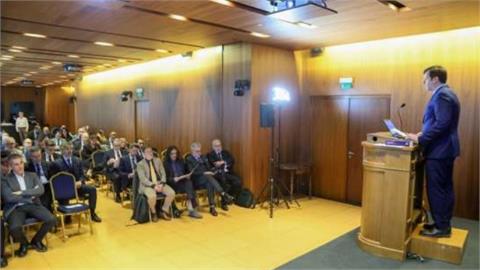The expansion of gas markets in the broader SE European area remains a priority in the context of long term strategy and planning for most countries in the region.This was one of the conclusions from the latest SE Europe Energy Dialogue which was organised by IENE in Thessaloniki on June 26/27
The expansion of gas markets in the broader SE European area remains a priority in the context of long term strategy and planning for most countries in the region.This was one of the conclusions from the latest SE Europe Energy Dialogue which was organised by IENE in Thessaloniki on June 26/27. As natural gas is the latest centralised energy source to be introduced in the region such a corollary comes as no surprise. What is surprising though is that this benign energy resource is still growing in terms of fuel segment in most countries' energy mix.
The above message along with the intricacies involved in local and regional market development was brought home by a group of distinguished and highly experienced speakers and panelists coming from Turkey - the region's largest gas market with some 50,0 bcm imports and annual consumption- Greece, Serbia ,Croatia,Romania and from Albania. The last one being a country without any actual gas use at present but which soon, thanks to the TAP pipeline now under construction, will introduce natural gas properly into its energy mix. The speakers and panelists on gas who participated in this year's Energy Dialogue included Goghan Yardim from Turkerler in Ankara, Dr.Aleksandar from Serbia,Vladimir Durovic from Croatia,DIMITRIS Kardomoteas from the Hellenic Gas Transmission Operator (DESFA), DIMITRIS Manolis from DEPA, Ljiljana Topolovic from Srbijagas, Anastasios Tosios from Attiki N.Gas Distribution company, Ilia Gjermani from the Ministry of Energy of Albania and Michalis Stergiopoulos from the Thessaloniki-Thessalia Gas Distribution Company.
With the notable exception of Bulgaria,which appears fully engulfed in its rather unfounded aspirations to play a leading role as a regional gas hub,and hence absent from the Energy Dialogue,all other countries present expressed their concern over the continuing lack of effective gas interconnections which prevent cross border transmission and trading. Although a number of such interconnections are now getting under way ( see IGB, IBS,IGF) and will most likely reach construction stage by 2019/2020, there is a lot of coordination and regulatory work that needs to be undertaken in order to create an effective regional interconnection framework.
Although there is no lack of mega projects in the region there is an urgent need for joint action, by the various countries involved,in order to ensure that the new significant gas quantities which will soon start flowing through it will bring some benefit to local markets. This was one of the main observations of the panel discussion which took place in the relevant session of this year's Energy Dialogue.With the recent completion of the huge TANAP pipeline and the imminent completion of TAP some 16 bcm will soon become available, half of which will stay in the region ( Turkey,Greece, Bulgaria) with the rest being directed to main European markets. More gas will also become available from 2019 from the Turkish Stream.
Although most of in the first stage will go towards meeting Turkey's needs, in replacement of the gas flows from the Trans Balkan pipeline, which will cease from December 31, 2019, additional quantities of some 16 bcm will become available destined for SEE markets and beyond. All these exciting developments will give the region a new impetus in its role as a focal point for European gas supply. Hence the need for increased cooperation and coordination between the various national transmission authorities ( I.e Botas, DESFA, Bulgartransgas,Transgas and Serbgas) The apparent need for such cooperation will become a key issue in regional energy developments, according to most speakers and panelists who participated in this year's Energy Dialogue gathering in Thessaloniki.
The implications and opportunities for the further development of local markets, through the expansion of national grids, was another area of extensive discussions and deliberations among senior executives from the various local players including EDA Thessaloniki,EDA Athens and Serbia Gas. All presentations from the 11th SEE Energy Dialogue will soon become available from IENE through the special conference micro site.




